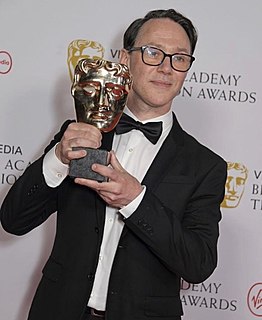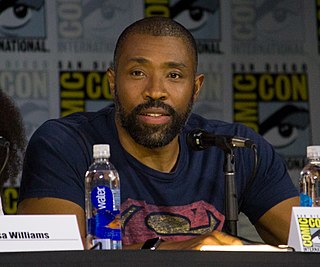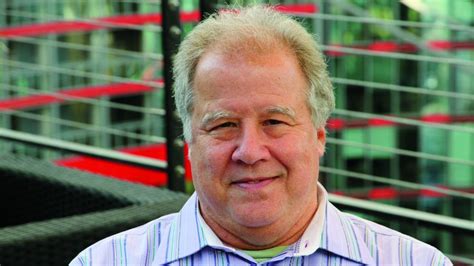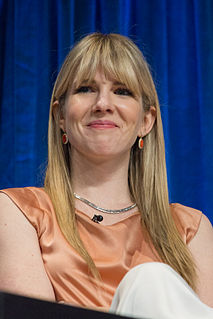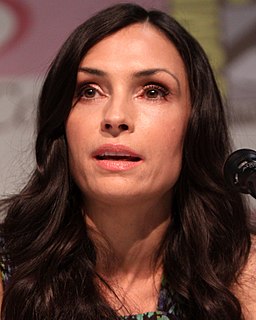A Quote by Lesley Sharp
If you start doing a television or a film job and you suddenly think it's a mistake - the director's horrible or the people you work with aren't very kind, or whatever - it's much easier to deal with because it's in bite-sized chunks. You do it, you go home.
Related Quotes
Live theatre is great. I loved doing the League live because you get that element of spontaneity, but then when I'm doing live I start to crave the precision of filming. It's a different discipline; it's like a scalpel and you're very precise suddenly. It's scary as well because you think this is it, this is my one go at making it if I can the best it can be, because this is how it's going to be remembered and rendered and left on this film indelibly. And people are going to look back on this and that's that.
With a director it's all about the work; I'd work with a great director over - you know, I'm not the kind of actor who that doesn't go, 'I want to play this role.' It's more like, 'I want to work with this director,' regardless of what the role is because if it's a good director, you'll probably find a good role because it's a decent film. But a mediocre director will always make a mediocre movie.
It takes a number of different skill sets, I think, to try and be a good producer. You have to be very creative, but you also have to be incredibly financially minded. I jokingly say the job is kind of part cheerleader and part dictator. It is both of those things, because you have to make sure that people are doing what they need to be doing, but creatively you really need to be helping each person in every job across the crew. Cheering them on, keeping them inspired into doing their best work, and you have the director's vision in the forefront.
My first job was television. I got to where I wanted to go, but through a little bit of a detour. When I first started working in film and television, I hated myself - I didn't like what I was doing at all. All I could think of was, 'I'm overacting. Be smaller.' I started to do that, but that was not fun. I felt confined doing film and TV.
I got into television criticism because I thought it would be easier than film criticism. Film, you had to know 100 years of history, and TV you only had to know 40 when I started. And I thought, "Well, that's going to be so much easier." But film stayed pretty much the same. And television has changed so many times that my head hurts. So I made the wrong call there.
If you had a job, and every day you're going back home and telling all your friends how horrible your job is and how horrible your employer is, after a while, they're going to start believing you. And then at some point, they're going to start questioning you and say, 'Why, if it's so bad, are you doing it?'
Sometimes I would go home from work and just stare at the wall for a couple of hours. But, I can't complain. Whatever knocks you out working is the kind of work that I want to be doing because it's always those challenges that are the most exciting, and the things I hope to get to keep doing in my work.
The great thing I think when you do independents is that people are really there for the same reason. They're not there because they got a lot of money and they want to just go home and get it over with. They're there because they believe in the script or the director or the cast or whatever it is, and they want to make it work.
In Hong Kong, in our generation that started out in the 1970s, being a director wasn't a big deal. We didn't even have director's chairs. We weren't particularly well paid. The social standing of a film director wasn't that high. It was a sort of a plebeian job, a second or third grade one. And the studio heads are always practical, there's never any fawning because someone is a director. There's very little snobbery about one's position as a director. The only ones people treated differently were those that were also stars; or the directors who also owned their companies.
The first thing I say when people ask what's the difference [between doing TV and film], is that film has an ending and TV doesn't. When I write a film, all I think about is where the thing ends and how to get the audience there. And in television, it can't end. You need the audience to return the next week. It kind of shifts the drive of the story. But I find that more as a writer than as a director.
I work very regular hours, roughly 9 to 5:30. I think I have it much easier than a lot of parents. I just sit at home, I have a very flexible timetable, and I'm very fortunate in that I don't have money problems. I have lunch with my wife at home. I don't have to commute, so I have much more time with my family.

